News/Events
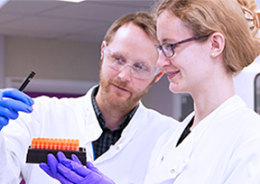
PhD Programme for Health Professionals now open for applications
A new programme is offering seven fellowships to clinical health professionals seeking to pursue a successful academic career.Read more

Com-COV 3 COVID-19 vaccine study calls on teenager volunteers in Cambridgeshire
12 to 16 years old to receive a second dose of a COVID-19 vaccine, including Cambridgeshire.Read more
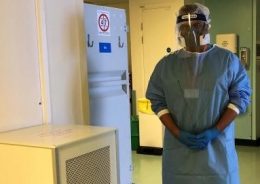
Using air filters on hospital wards remove almost all airborne Covid virus
A new study has found placing air filtration machines in COVID-19 wards at Addenbrooke’s Hospital, removed almost all traces of airborne SARS-CoV-2 virus.Read more

New ground-breaking research that is a potential game-changer for diagnosis and treatment of undiagnosed rare disease patients
In a world-first, new research has shown that whole genome sequencing can uncover new diagnoses for patients with rare diseases. Read more

Large-scale genetic study reveals new clues for the shared origins of irritable bowel syndrome and mental health disorders
An international study has revealed that IBS symptoms may be caused by the same biological processes in conditions such as anxiety.Read more

New research shows how our brain uses nutritional state to control growth and age at puberty
Rearchers have discovered how a receptor in the brain detects the nutritional state of the body and regulates the timing of puberty and rate of growth in children.Read more
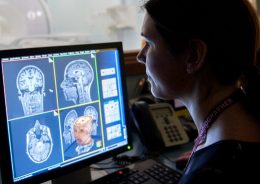
Scientists identify the cause of Alzheimer’s progression in the brain
New research has used human data to quantify the speed of different processes that lead to Alzheimer’s disease and found that it develops in a very different way than previously thought.Read more
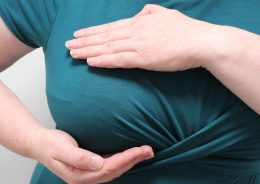
Call for 10,000 volunteers in the UK to take part in international breast cancer study
NIHR Cambridge Biomedical Research Centre is supporting a large international study to test out a more personalised way to screen for breast cancer and detect it sooner.Read more
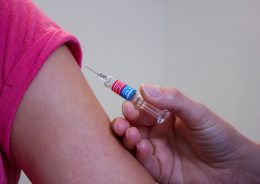
Positive phase 3 results reported in trial for new Covid-19 vaccine
A clinical trial supported by the NIHR Cambridge BRC for a new vaccine against COVID-19 has received positive Phase 3 results.Read more

Professor Rebecca Fitzgerald awarded The Don Listwin award
Congratulations to Professor Rebecca Fitzgerald, who has received the Don Listwin Award for Outstanding Contribution to Cancer Early Detection.Read more
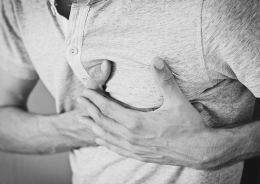
Could a cancer drug be key to helping patients recover from a heart attack?
A trial is underway in Cambridge to investigate whether a cancer drug could improve the recovery of heart attack patients, by targeting the immune system.Read more

Supporting National Inclusion Week
National Inclusion Week campaign aims to celebrate everyday inclusion in all its forms. Read more
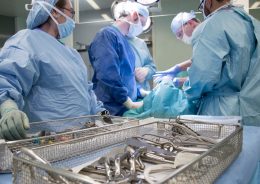
How is research helping with life-saving liver transplants?
Professor Ludovic Vallier, theme lead for transplantation and regenerative medicine explains about the latest research that is happening in Cambridge. Read more

Journey of the Cytosponge
How does an idea for a new diagnostic test become a reality? Follow the journey of the cytosponge or ’pill on a string’, a revolutionary new test to detect Barrett’s oesophagus.Read more

World first for AI and machine learning to treat Covid patients worldwide
Researchers across the world have used artificial intelligence to predict Covid patients’ oxygen needs on a global scale.Read more

Researchers eye up new gene therapy trial that could reverse hereditary blindness
Restoration of sight from a rare genetic mutation may now become a reality thanks to a prestigious award from the NIHR and Moorfields Eye Charity.Read more

Cambridge researchers win Croonian Medal and Lecture 2022
Congratulations to our Metabolism, Endocrinology and Bone theme lead, Professor Sir Stephen O’Rahilly and to Sadaf Farooqi, Professor of Metabolism and Medicine, who have been awarded the Croonian Medal and Lecture 2022 from Read more
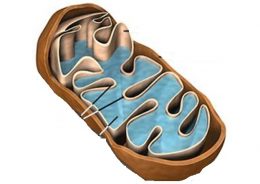
Link between amino acid and a range of common diseases could help predict personal risk
Researchers have identified associations between mitochondrial DNA variants and an amino acid, and effects on the risk of developing a range of common, late-onset illnesses.Read more

New gene variants identified that cause hypertension in pregnant women
Researchers have found a unique pair of gene variants that cause sudden onset high blood pressure in pregnant women.Read more
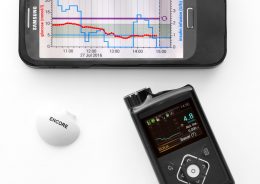
Artificial pancreas trialled for outpatients with type 2 diabetes for first time
An artificial pancreas could soon help people living with type 2 diabetes and who also require kidney dialysis.Read more


